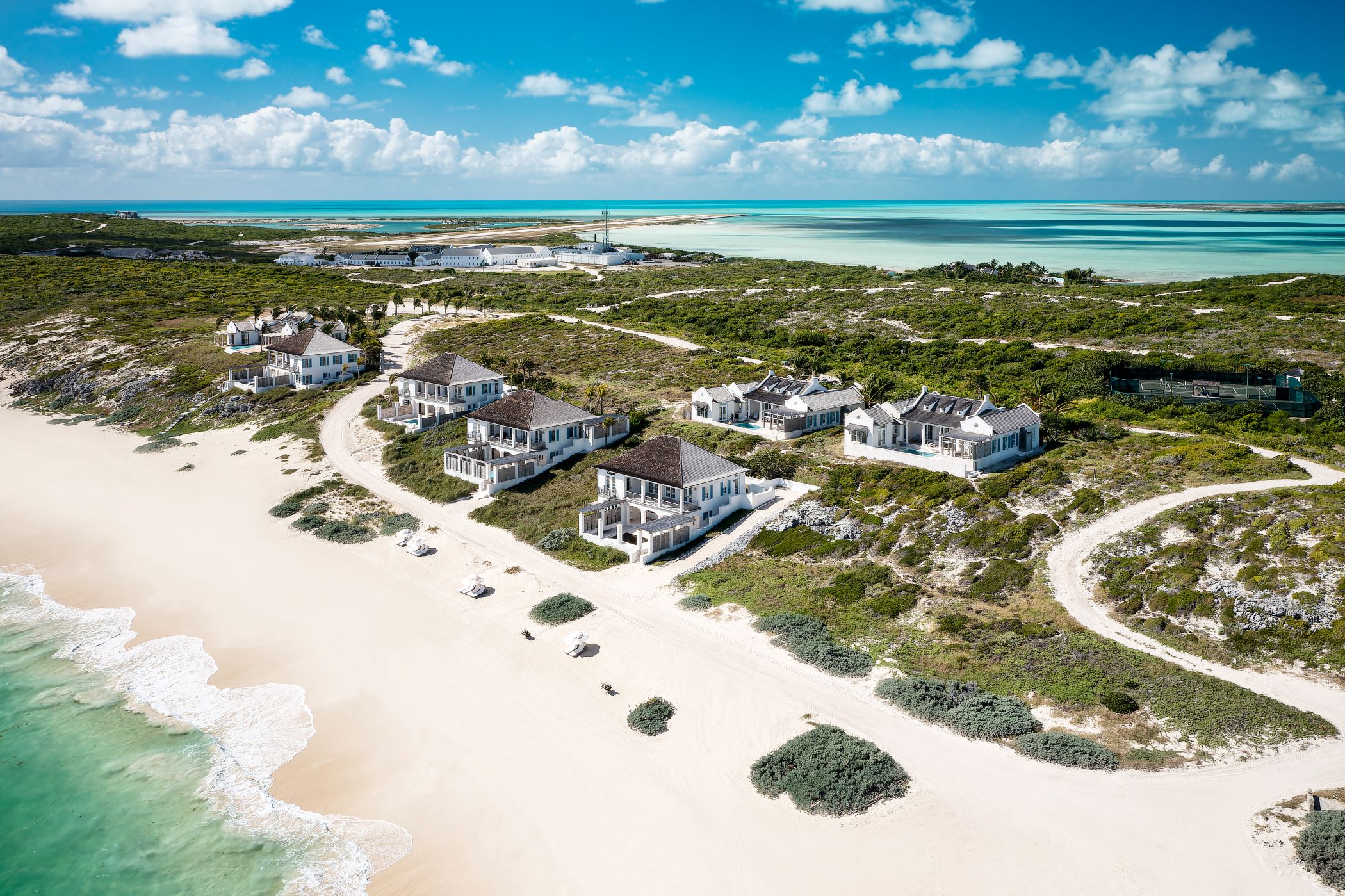Real estate investment can be a tricky undertaking. Whether in the U.S. or abroad, Haute Residence Experts give their best advice on how to navigate the process.
Greg Gunter, San Miguel de Allende, Mexico
If you're looking for Return on Investment (ROI) as your primary objective in a property acquisition, work with a finance-educated Realtor who will educate you that your Internal Rate of Return (IRR), which also includes appreciation, is your true measure of a great investment. That Realtor will also steer you to the neighborhoods offering the most potential for appreciation!
Alfonso Tapia, Downtown Miami, FL
- Research the local market before investing and learn about the area's current trends.
- Understand the financing options available and determine which one best fits your needs.
- Hire a knowledgeable and experienced real estate agent because will be invaluable in the process of finding and investing in the right property for you.
- Create a financial plan and once you have decided on the property you intend to buy, ensure that you are aware of all costs associated with the purchase and secure financing before making the purchase.
- Consider the potential long-term and short-term profits that can be earned and plan accordingly.
With St. Croix on the rise as the hottest new destination to travel to in the Caribbean, we have seen a lot of new investors, both large and small, setting their sights here and putting their dollars into our economy. From major boutique hotel renovations like the King Christian Hotel on the boardwalk to vacation homes and condos.
When it comes to a Caribbean destination, the most important step, and the first thing you should do, is to research real estate agents and determine which one is the best fit for you and your real estate goals. We often see a lot of advice to first research the area by looking at the real estate market, tourism, and microeconomics. However, your real estate partner in whatever local area you are searching to invest in should know all of this information and take the time to educate you.
Once you have an understanding of the real estate and tourism market, along with the microeconomics and growth opportunities, then you’ll want to start narrowing in on properties. Make sure to share your investment goals along with your budget and the criteria of your real estate search with your Realtor ®. Getting clear on your finances and how you plan on funding your purchase will be a very important aspect of your property search and purchase. When investing in St. Croix, if you are considering traditional financing for a secondary home loan, you will need to work with a local lender. We also advise our clients to consider some creative financing options such as utilizing 1031 exchanges, doing a home equity line of credit, owner financing, or private funding and financing. If it is a larger investment and you need to raise capital, work with your real estate professional to put together a compelling brochure that should cover everything from the local economy, tourism statistics and pertinent tourism information, comparable rental properties/hotels in the area, a CMA for the specific property you are interested in raising capital for and the potential to add value for the property.
And of course, while I am here and hopefully grabbed your attention, I would love to be part of your first step if you are considering investing in the US Virgin Islands. We have so many investment opportunities from low-maintenance condos or beachfront villas that would make great vacation rentals to historic boutique hotels like this newly listed waterfront hotel in Christiansted, 40 and 40a Strand Street.
Tim Van Damm, Rancho Santa Fe, CA
Real estate has always been an excellent place to invest. Not only is real estate a tangible asset but it can be leveraged, has a tremendous amount of tax benefits, and has traditionally been a safe long-term investment. If someone is interested in investing in real estate, the first thing I would recommend would be to find a trusted advisor who is a real estate professional who can help to find and analyze the right deals. Depending on what kind of real estate asset, this could mean multiple people. For example, a realtor who specializes in commercial buildings likely won't sell luxury homes. So, first, decide what kind of real estate you're interested in investing in, and then seek out the professionals with the right expertise to help guide you.
"A Goal Without A Plan Is Just A Wish."
No matter where you are in life, whether a young person graduating from high school or college, someone just starting a career, or enjoying a dream job, the first thing we suggest is to sit down with a mortgage broker or banker to outline a plan. The lender will tell you how much you will need to buy a property, how much money you will need in savings, and how long you need to be in a job before you can obtain a loan plus other important factors. Your next step is to set a savings goal for yourself. Maybe that means you will put $500 or $5000 from your paycheck into your savings account each month. If you receive bonuses or are on a commission-based salary, identify, in writing, what that figure will be. Consider purchasing a property with one or two friends or colleagues. In the end, it is crucial to meet with both a lender and a Realtor who can help position you for success. We believe it is never too early to begin a conversation, so if you are considering purchasing a home or investment property we would be happy to provide guidance.

When it comes to investing in real estate, here are some key pieces of advice to consider:
Set Clear Investment Goals: Define your investment objectives, whether it's generating passive income through rental properties, seeking long-term appreciation, diversifying your investment portfolio, or a combination of different goals. Knowing what you want to achieve will guide your investment decisions.
Conduct Thorough Market Research: Study the real estate market trends, both nationally and locally. Look for areas with strong economic growth, job opportunities, population growth, and favorable market conditions. Analyze historical data and consult local experts or real estate agents to gain insights into the market dynamics.
Create a Budget and Secure Financing: Determine your budget and explore financing options available to you. Evaluate your financial capacity, consider your creditworthiness, and explore different loan options to find the most suitable financing solution for your investment goals.
Choose the Right Property Type: Determine the type of property that aligns with your investment strategy. Options include residential properties (single-family homes, multi-family units, condos), commercial properties (office buildings, retail spaces), or specialized properties (industrial, vacation rentals). Each property type has its own pros and cons, so evaluate them based on factors such as cash flow potential, maintenance costs, and market demand.
Location, Location, Location: Emphasize the importance of location. Look for properties in areas with desirable amenities, such as good schools, proximity to transportation, shopping centers, parks, and low crime rates. A prime location can contribute significantly to a property's long-term value and rental income potential.
Conduct Due Diligence: Before making an investment, conduct thorough due diligence. Inspect the property, review its history, evaluate potential repairs or renovations needed, and assess any legal or zoning restrictions. Engage professionals such as home inspectors, appraisers, and real estate attorneys to ensure you have a comprehensive understanding of the property's condition and legal status.
Calculate the Numbers: Perform a detailed financial analysis to assess the investment's viability. Consider factors such as purchase price, potential rental income, property taxes, insurance, maintenance costs, and vacancy rates. Calculate your expected return on investment (ROI) and cash flow, and consider potential risks or unforeseen expenses.
Build a Network: Develop relationships with professionals in the real estate industry, including real estate agents, property managers, contractors, and lenders. Networking can provide valuable insights, access to off-market deals, and a support system for property management and maintenance.
Manage Risk: Diversify your real estate investments across different property types and locations to minimize risk. Consider investing in real estate investment trusts (REITs) or real estate crowdfunding platforms for additional diversification.
Stay Informed and Adapt: The real estate market is dynamic, so stay updated on market trends, regulations, and economic indicators that can impact your investments. Be prepared to adapt your strategy if market conditions change.
Remember, investing in real estate involves careful research, analysis, and a long-term perspective. It can be rewarding but also carries risks, so it's essential to approach it with a well-thought-out plan and seek professional advice when needed.

This is a particularly good time to consider investing in real estate. Economic uncertainty including inflation, bank instability, and interest rate fluctuation means that you need to be more strategic than ever about protecting your value over the long term. If you are prepared for a long-term investment, real estate is a very favorable option but there are a lot of things to consider even beyond the length of your investment. Knowing as much as you possibly can about the market where you invest is essential, and that includes considering whether a real estate investment will be an income property and what the local regulations are for short-term and seasonal rentals. Sarasota is a great market for income properties because we have so many vacation visitors throughout the year. Other things to consider are the tax environment and whether there will be any tax advantages or tax liabilities arising from a real estate acquisition. Because of Florida's highly favorable tax environment, we are a very popular state for primary and secondary real estate investment, but it's important to consult with a local professional about the specific impact on you. Your personal liquidity and the market trends in your target area are important considerations too. Of course, you don't want to invest in a market where appreciation is trending down, so pay attention to the specific neighborhoods that are gaining value and the types of homes and features driving the highest appreciation. The best advice for any investment, including real estate, is to equip yourself with as much knowledge as possible. Find a local expert, ask questions, ask more questions, and then explore all of the information and continue to analyze the trends even after your purchase.
Jacopo Iasiello, Brickell, Miami, FL
Define your goals: What do you want to achieve by investing in real estate? Are you looking for long-term rental income, short-term profits from flipping properties, or a combination of both? Defining your goals upfront can help you make informed decisions and stay focused.
Educate yourself: Learn as much as you can about real estate investing, including the local market, financing options, and potential risks. This will help you make informed decisions and minimize mistakes.
Determine your budget: How much can you afford to invest? Consider your current financial situation, including your income, expenses, and other investments. Be sure to factor in any additional costs associated with real estate investing, such as property taxes, maintenance, and insurance.
Research the market: Look for areas with strong rental demand and potential for appreciation. Check out local listings, attend open houses, and talk to real estate agents and other investors to get a sense of the market.
Consider financing options: Real estate can be expensive, so consider your financing options carefully. Traditional bank loans, private lenders, and crowdfunding platforms are all potential options.
Work with a professional: Consider working with a real estate agent, attorney, or financial advisor who specializes in real estate investing. They can provide valuable advice and guidance throughout the process.
Remember that real estate investing can be risky, so it's important to do your due diligence and proceed with caution. But with the right strategy and mindset, it can be a great way to build long-term wealth.
Antonette Baptist, Provenance Properties Cayman Islands
You need a few things:
1) An understanding of the jurisdiction you’re choosing to invest in. Consider any building regulations, residency implications, legal restrictions or requirements, etc.
2) Determine your budget inclusive of related fees including legal, insurance, and strata.
3) Identify your purpose for the property, is it a vacation home, primary residence, or an investment property?
These (3) key considerations will guide the purchaser to investment opportunities that fit their individual needs.



 Amy Land-de Wilde, St. Croix
Amy Land-de Wilde, St. Croix







